There is no scientific evidence that wireless charging can damage your phone. However, there is some anecdotal evidence that suggests that it can. Some people believe that wireless charging can cause the phone to heat up, which can cause damage to the phone. However, there is no empirical evidence to support these claims. Therefore, it is safest to assume that wireless charging will not damage your phone.
Get started here
wireless charging is a technology that allows devices to be charged by a wireless transmitter instead of a cable. Some people worry that wireless charging can damage their phones. However, there is no evidence that wireless charging is harmful. In fact, many experts believe that wireless charging can actually be helpful because it can reduce the amount of time that people need to charge their phones.
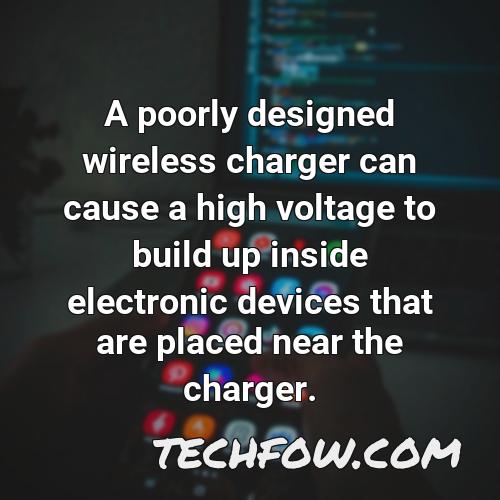
Is a Wireless Charger Bad for Your Phone
There is a popular belief that wireless charging is bad for your smartphone because it generates more heat than wired charging. However, this is simply not true. Wireless charging actually uses less power than wired charging, and it does not damage your smartphone’s battery. In fact, wireless charging can actually help to preserve your smartphone’s battery.
First of all, wireless charging uses less power because it does not require you to connect your smartphone to a power source. Instead, the charging station uses electromagnetic fields to transfer energy to your smartphone. This means that your smartphone can stay placed on the charging station without using up any battery power.
Second, wireless charging actually helps to preserve your smartphone’s battery. When your smartphone is charging wirelessly, it is constantly switching between using the power from the battery and using the power from the wireless network. This means that your smartphone is constantly using resources, and it can wear down your battery over time.
However, wireless charging does have one potential downside. If your smartphone is placed on the charging station incorrectly, it can actually damage your battery. So make sure that you are using the correct charging station for your smartphone, and take care not to place it on the charging station too harshly.
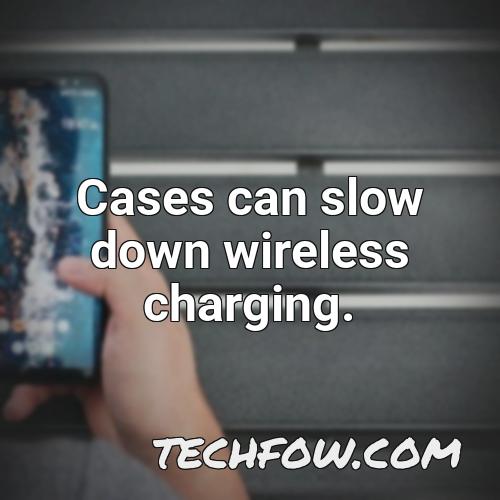
Can Wireless Chargers Damage Other Electronics
A poorly designed wireless charger can cause a high voltage to build up inside electronic devices that are placed near the charger. This high voltage can damage the devices.
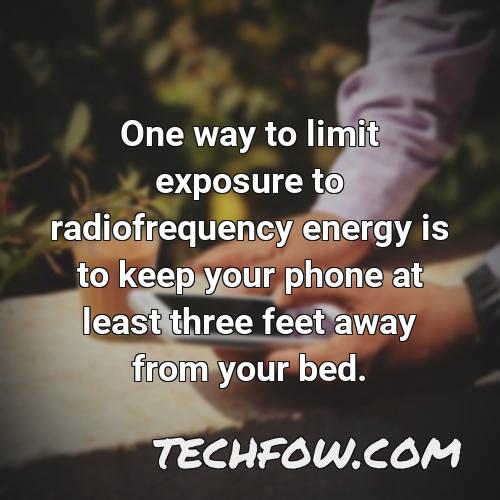
Is It Safe to Use Wireless Charger for Iphone
When you plug in your iPhone to the wall charger, your battery gets a break. This means that it doesn’t have to work as hard to keep your iPhone charged. This is good for your battery, and it also means that your iPhone will last longer because it doesn’t have to work as hard.
Wireless charging, on the other hand, constantly uses your battery. This means that your battery will be stressed every time your iPhone charges. Over time, this can cause your battery to wear down faster, and it can also reduce the lifespan of your iPhone.
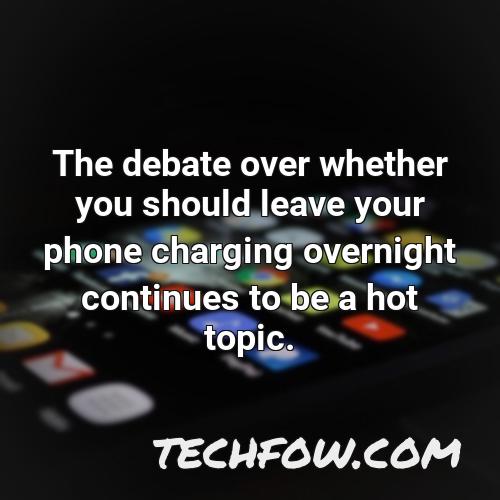
Why Does Wireless Charging Get Hot
When you put your iPhone on a wireless charging pad, the phone and the charging pad battle it out. If the phone isn’t in the right spot, the phone and the charging pad will produce excessive heat. This can cause the iPhone to get hot, and sometimes even hot enough to damage the phone. There are a few things you can do to fix this problem.
The first thing you can do is to check to make sure your iPhone is in the right spot. Sometimes, the phone will move during the battle, and you may not be able to put it in the right spot. If this is the case, you can try using an adapter to make the phone compatible with a specific wireless charging pad.
Another thing you can do is to avoid using wireless charging if you can. If you don’t have to, avoid putting your iPhone on a wireless charging pad. This will help to avoid the battle between the phone and the charging pad, and it will also keep your iPhone cooler.
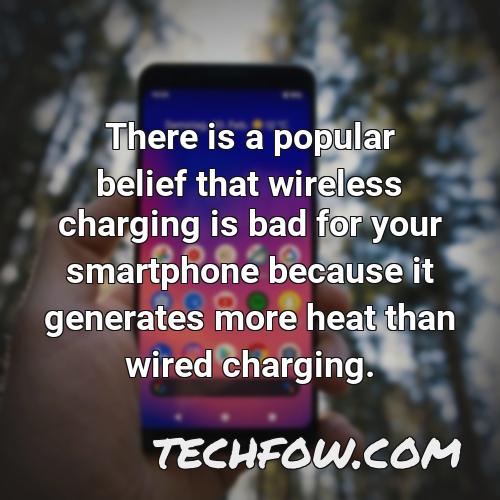
Is Wireless Charging Slower With a Case
-
Cases can slow down wireless charging.
-
If you have a thick or metal case, it may slow down the charging process.
-
You can take off your case before putting it on a wireless charger to speed up the process.
-
Wireless charging is faster with less clutter.
-
Charging your phone wirelessly is a more environmentally friendly option.
-
Wireless charging is compatible with most phones.
-
You can use a wireless charging pad or stand to increase the speed of charging your phone.
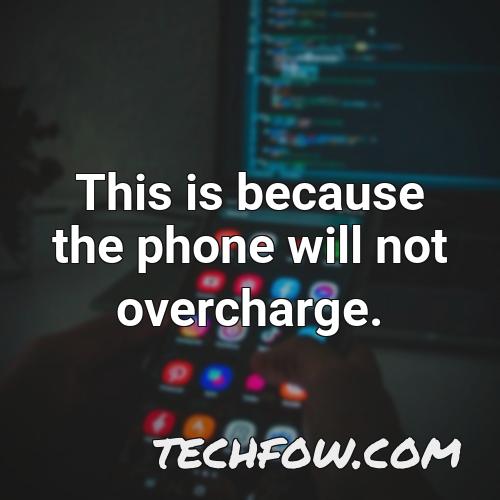
Do Wireless Chargers Stop Charging After 100
The debate over whether you should leave your phone charging overnight continues to be a hot topic. Many people believe that it is safe to do so, while others believe that it is not. The reason that the debate continues is because there is no clear answer.
When a battery hits 100%, charging stops. However, the chip or sensor continues to work to monitor the battery, and apps continue to run in the background. This is why some people believe that it is safe to leave your phone charging overnight.
Others believe that it is not safe to leave your phone charging overnight. They argue that when the battery hits 100%, charging stops. However, the chip or sensor continues to work to monitor the battery, and apps continue to run in the background. This is why some people believe that it is not safe to leave your phone charging overnight.
The debate over whether you should leave your phone charging overnight will continue to be a hot topic. The reason that the debate continues is because there is no clear answer.
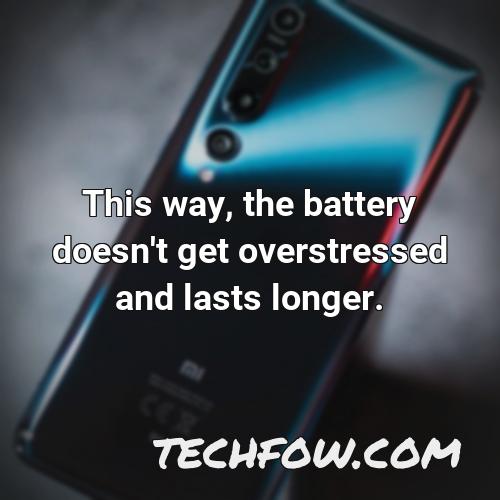
Are Third Party Wireless Chargers Safe
The safety of third-party wireless chargers is a topic of debate. Some argue that third-party wireless chargers are just as safe as certified premium-quality wireless chargers, while others contend that there is a risk of fire or other injuries.
The debate over the safety of third-party wireless chargers can be broken down into two main camps. The first camp argues that certified premium-quality wireless chargers are just as safe as third-party wireless chargers and that there is no risk of fire or other injuries. The second camp contends that there is a risk of fire or other injuries with third-party wireless chargers and that users should only use certified premium-quality wireless chargers.
There is some evidence that supports the first camp’s argument. For example, the US Federal Trade Commission (FTC) as found that many off-brand wireless chargers do not meet the safety standards required by the US government. This is because many off-brand wireless chargers are not certified by independent testing organizations. This means that they may not comply with safety standards set by the FCC and other regulatory bodies.
On the other hand, there is some evidence that supports the second camp’s argument. For example, there have been reports of third-party wireless chargers catching fire. In some cases, this has resulted in injuries to the users of the chargers. Additionally, there have been cases where users have reported that their mobile phones have exploded while they were using third-party wireless chargers.
Ultimately, the safety of third-party wireless chargers is a matter of debate. However, users should be cautious when using these chargers and should only use certified premium-quality wireless chargers.
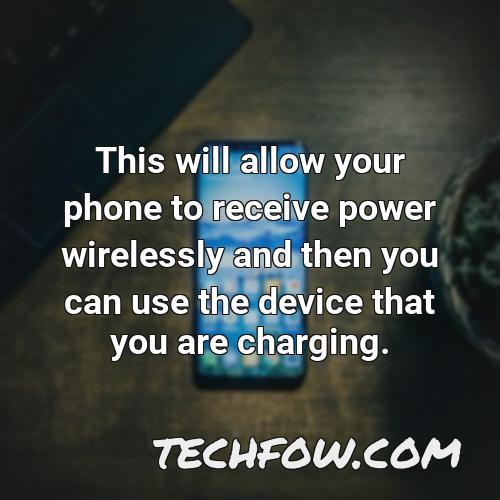
Is Wireless Charging Bad for Battery Samsung
When you put your phone on a wireless charging pad, the pad sends a signal to your phone to start charging. This signal is very similar to the signal that your phone receives when you are using a cable to charge your phone.
The main difference is that the wireless signal doesn’t use wires to send the energy to your phone. Instead, the pad uses radio waves to send the energy to your phone.
This means that the pad can send more energy to your phone than a cable can. This is why wireless charging is faster than cable charging.
However, because the pad is sending a lot of energy to your phone, it can also generate heat. This heat can damage your phone’s battery.
So, while wireless charging won’t damage your phone battery if you use it safely, it’s important to be aware of the risks involved.
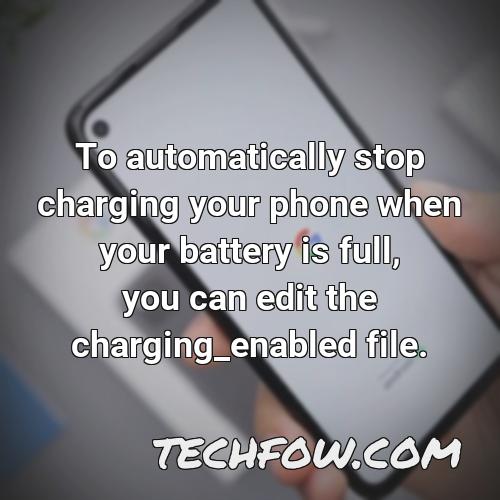
What Is Reverse Wireless Charging
When you are using reverse wireless charging, you place your smartphone on the wireless charger that is meant for your smartwatch, wireless in-ear headphones, or other device. This will allow your phone to receive power wirelessly and then you can use the device that you are charging. You can also use this method to charge other people’s phones.
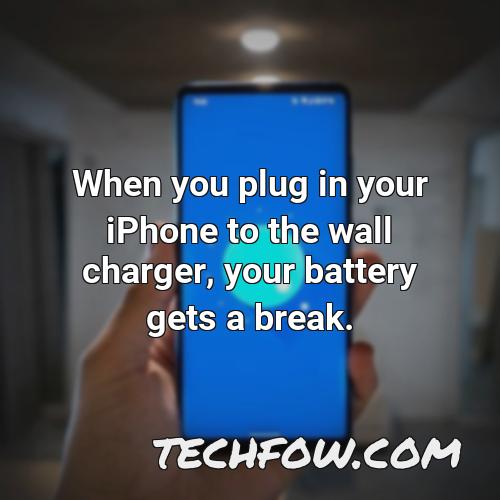
How Far Away Should Your Phone Be When You Sleep
One way to limit exposure to radiofrequency energy is to keep your phone at least three feet away from your bed. If you need to use your phone as an alarm, turn on airplane mode to prevent it from sending or receiving calls and text messages. During the day, carry your phone in a purse or bag, rather than in your pocket.
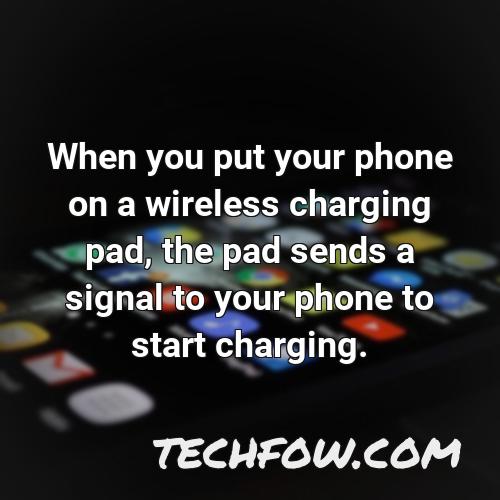
Why Does My Phone Stop Charging at 80
In iOS 13, Apple created a battery optimization feature that slows down how quickly your iPhone charges. This way, the battery doesn’t get overstressed and lasts longer. Sometimes, the phone will charge all the way, but other times it might only charge to 80%.
What Happens if You Keep Your Phone Charging After 100 Iphone
If you keep your phone charging after it has reached its 100% charge, it will not charge more. This is because the phone will not overcharge.
How Do I Automatically Stop Charging When My Battery Is Full
To automatically stop charging your phone when your battery is full, you can edit the charging_enabled file. To do this, open a root file browser and navigate to the /sys/class/power_supply/battery folder. Next, open the charging_enabled file with a text editor and delete the number 1. Replace it with the number 0. This will disable charging on your phone when your battery is full.
Summary
There is no scientific evidence that wireless charging can damage your phone, but there is some anecdotal evidence that suggests that it can. Some people believe that wireless charging can cause the phone to heat up, which can damage the phone. However, there is no empirical evidence to support these claims. Therefore, it is safest to assume that wireless charging will not damage your phone.
